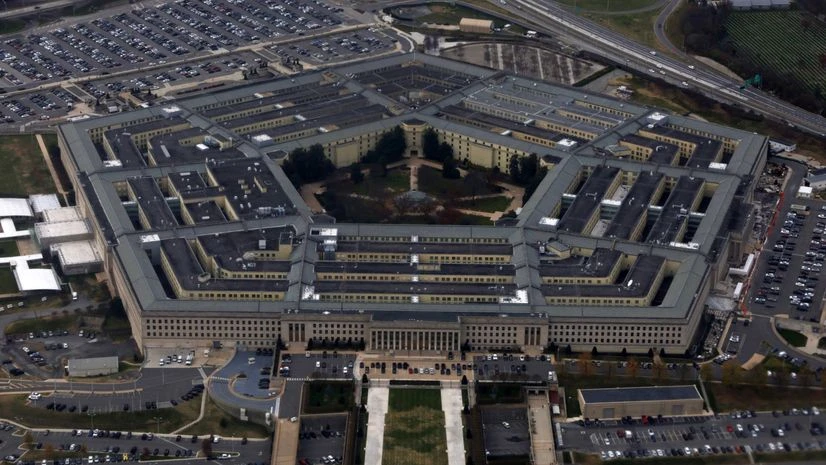The US Department of Defense picked Jeff Bezos' Blue Origin, Elon Musk's SpaceX and Boeing-Lockheed joint venture United Launch Alliance (ULA) to compete for national security space missions, making initial selections under a $5.6 billion award program.
The Pentagon did not say which of the companies' rockets it selected, but noted seven companies bid for entry into the program, which seeks upcoming rockets that must be ready to fly their first missions to space by December.
The three companies are the first to be selected under the Pentagon's lucrative National Security Space Launch Phase 3 procurement program, a multibillion dollar competition among US rocket companies vying to launch some of the country's most sensitive military and intelligence satellites into space for roughly the next decade.
SpaceX and ULA, two titans in the launch industry, have since 2020 been the Pentagon's primary rocket launch providers under a predecessor program, called Phase 2. That program gave ULA a 60 per cent share of all Pentagon missions through 2027, with SpaceX getting the rest.
But in the program's third phase, the Pentagon has sought a wider variety of companies for its space missions into the next decade, mainly to stimulate more competition in the U.S. launch sector.
The announcement on Thursday brings Bezos' rocket launch and human spaceflight company Blue Origin into a competitive arena it has long wanted to enter as it tries to bring its giant New Glenn rocket to market and ramp up its competitive footing with SpaceX.
SpaceX's partially reusable Falcon 9 rocket has dominated the launch industry while the company test launches its next-generation Starship rocket, a massive, fully reusable launch system that Musk sees as crucial to flying humans into space and launching large batches of satellites into orbit.
More From This Section
While ULA's workhorse Atlas 5 rocket nears retirement, its next-generation Vulcan rocket is poised to become the company's centerpiece launcher. Vulcan first launched this year, and its second mission - a crucial step to receive certification for Pentagon missions - has been delayed but is expected to fly later this year.
The three companies did not immediately reply to requests for comment about their rockets' role in the Pentagon program.
The Pentagon's Phase 3 program is divided into two categories, Lane 1 and Lane 2. Lane 1, the category of Thursday's announcement, allows more novel or specialized rockets to fly national security missions that have less-stringent requirements. More companies, such as Rocket Lab , are expected to be added to Lane 1 in the coming years.
The US Space Force, which manages the launch procurement program, said Blue Origin received $5 million to provide an assessment of how it will meet the Pentagon's launch requirements. SpaceX and ULA - companies Space Force is more familiar with - each got $1.5 million.
Lane 2, whose awards are expected in autumn, will tap three companies whose rockets are capable of meeting a wider variety of national security mission requirements, indicating the most experienced players such as SpaceX and ULA will be most fit for awards.
(Only the headline and picture of this report may have been reworked by the Business Standard staff; the rest of the content is auto-generated from a syndicated feed.)

)
